Director: Seijun Suzuki
Cast: Hideaki Nitani, Yoko Minamida, Jo Shishido, Shinsuke Ashida, Kotoe Hatsui, Taketoshi Naito, Keisuke Noro, Toshio Takahara, Kaku Takashina, Kenjiro Uemura
Runnning Time: 92 min.
By Kelly Warner
In the old days, a film studio would have its contract actors who appeared in multiple releases each year and there was very little cross-pollination of actors working on films for other studios. Of course the bigger stars headlined the biggest films, while other contract players could appear in multiple films, sometimes up to a dozen films in a year. Over at Nikkatsu, they had the ‘Diamond Line,’ a group of their biggest stars who they made sure to put in their best films and provide with the best marketing. Tragedy forced the roster of the Diamond Line to change over time (for example: hot young star Keiichiro Akagi died at age 21 in a go-cart accident), and actors like Jo Shishido were integrated into the Diamond Line in their place.
This week Arrow Video is releasing Diamond Guys Vol. 1, their first in what I hope will be a long line of DVD/Blu-ray releases showcasing the talent from Nikkatsu’s golden age of action movies. First on the agenda is 1958’s Voice Without a Shadow starring Hideaki Nitani, Yoko Minamida, and Jo Shishido, under the direction of Seijun Suzuki.
As a film buff with a love for classic Japanese cinema, there are few things I enjoy more than the chance to see a recently unearthed film from a favorite director. There is a long list of classic Japanese films I want to see one day, some of which were made by Seijun Suzuki, but I must admit that Voice Without a Shadow was completely unknown to me. And that kind of made watching the film even more fun; I had no idea of what to expect, which can’t be said very often about a film that’s over fifty years old.
Voice Without a Shadow was made early in the director’s career. In fact, it’s the second earliest Suzuki film I’ve yet seen, released half a year after the film noir Underworld Beauty (that’s a good one. Check it out). At this point in his career Suzuki was not yet the enemy of the Nikkatsu studio executives, and so he was given good production values and a cast of big names. Still coming into his own as an artist, the visual flair that populates the director’s most well-known films is almost nowhere to be found here. This is a more restrained effort from Suzuki, but the style fits the story he’s telling.
Based on a mystery by one of Japan’s greatest writers, Seicho Matsumoto, Voice Without a Shadow is a very Hitchcockian tale of murder, paranoia, and whodunit. Told in an episodic nature, the film begins with Asako, a telephone operator played by Yoko Minamida (House), who dials the wrong number and hears the voice of a murderer. After police track the call to a crime scene in a pawn shop, Asako is tasked with helping the police identify the murderer by voice alone. Though she can differentiate voices with unrivaled accuracy, Asako is unable to help solve the crime and the case goes cold. Years later, Asako is a doting housewife tending to her husband’s needs. When her husband invites his clients over for endless games of mahjong, circumstances lead Asako to believe that the rowdiest client, Hamazaki (Jo Shishido), is the voice she heard all those years ago.
Another mysterious murder occurs and the mystery deepens, pulling Asako and her loved ones into a dangerous game of hidden truths. It’s at this point that reporter Ishikawa (Hideaki Nitani) takes over the film. He covered Asako’s story when she first heard the ‘voice without a shadow’ and he’s reinvigorated to solve the mystery now that another man has been killed.
While Asako’s storyline works as a paranoia thriller, Ishikawa’s is a noirish detective mystery. I enjoyed both sides to the story. It’s somewhat formulaic and it owes much to the thrillers of Alfred Hitchcock (nothing wrong with that), but it all works on at least some level.
Yoko Minamida is really good as Asako, the woman that nobody believes in. It’s not long before she also begins doubting herself. Minamida plays the conflicted character with gusto, taking Asako to the edge of sanity as the walls start closing in. In the role of Ishikawa, Hideaki Nitani (Tokyo Drifter) has less colorful material to work with but he makes the best of it. Ishikawa’s role in the story is essentially to connect the dots for the audience. Nitani is good in the role; you trust him instantly, which cannot be said about any other character in the film. Jo Shishido (Branded to Kill) makes a strong impression in his supporting role as the suspected murderer. I’m so used to seeing Shishido as an anti-hero, it’s refreshing seeing him play such a sleazy villain.
Those seeking an old-fashioned murder mystery with a good cast and confident direction will find just what they’re looking for here. Voice Without a Shadow may not be a signature film for director Seijun Suzuki but it’s a fine example of the director’s success working in the mystery/thriller genre. Suzuki, for all his acclaim, is not often known for his intricate storytelling. Voice Without a Shadow is a fairly complex film, one with enough plot threads and red herrings to satisfy even the diehard mystery and film noir fans.
Kelly Warner’s Rating: 7.5/10

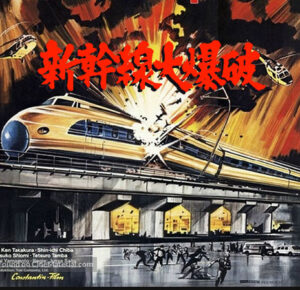
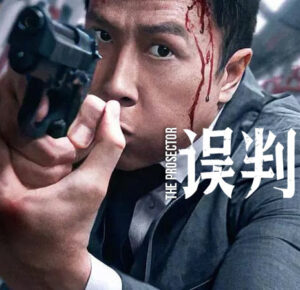
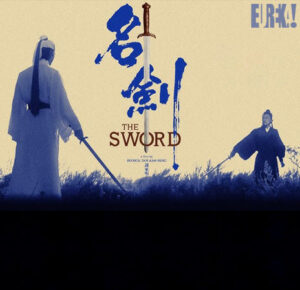
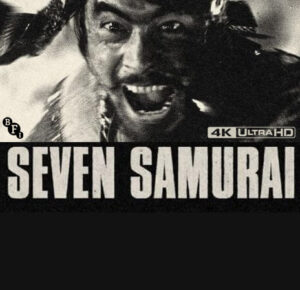
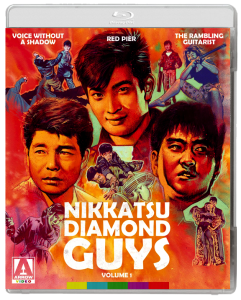













 The Hangover
The Hangover
















 FUNG SHENG WU CHI
FUNG SHENG WU CHI JACK
JACK SASAKI KOJIRO
SASAKI KOJIRO BOYKA
BOYKA MAD DOG
MAD DOG THE KILLER
THE KILLER LO PAN
LO PAN THE BEAST
THE BEAST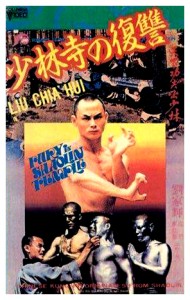





Be the 1st to Comment